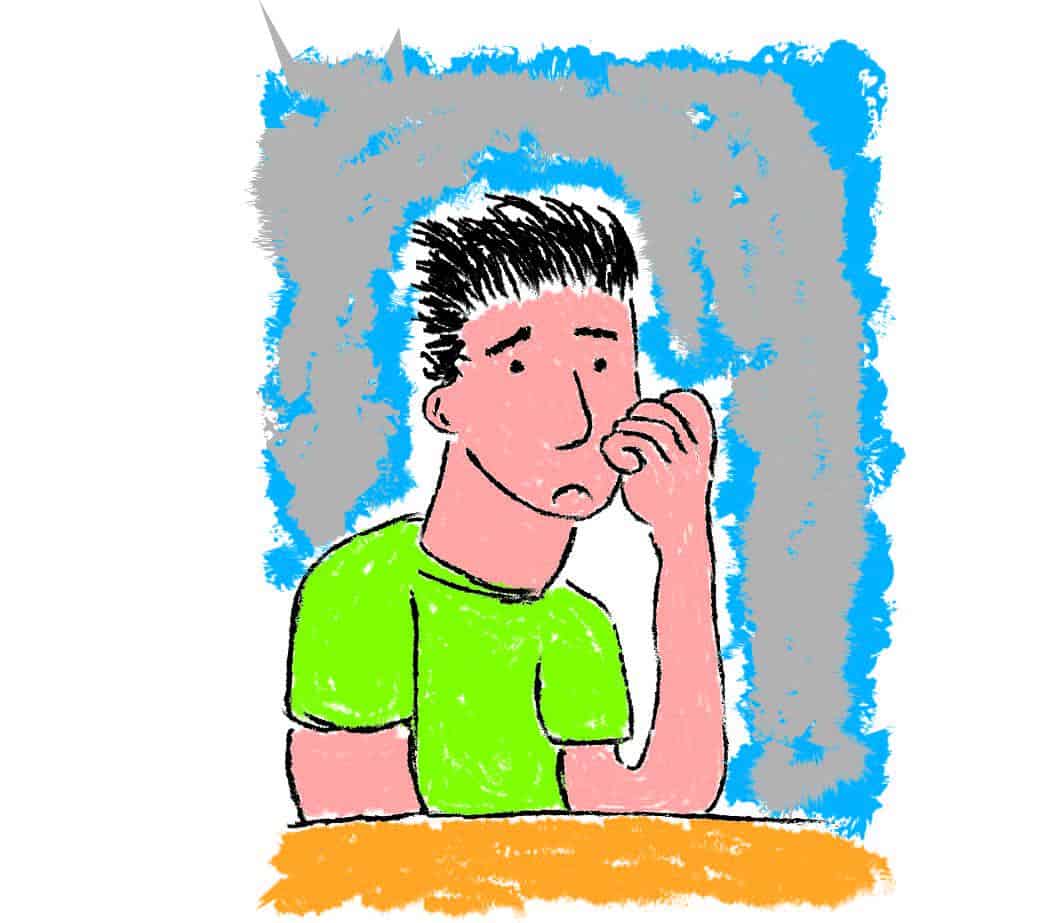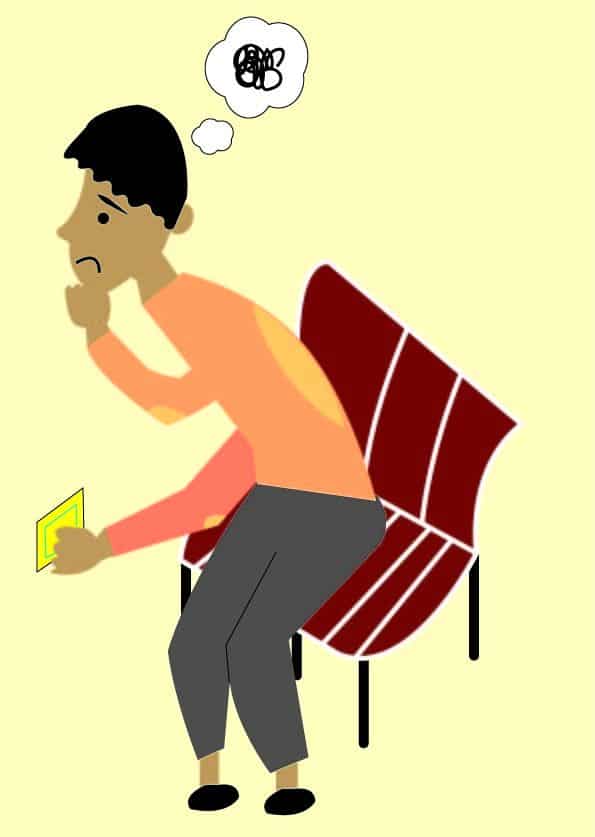Grief and depression can both bring about severe bouts of sadness and hopelessness, but while both are not mutually exclusive, they are ultimately very distinct experiences and knowing how to tell the two apart is important. Grief can occur when one experiences the loss of a significant person or animal etc. in their lives and is a natural response to such an upsetting event. On the other hand, recognising the signs of depression allows one to seek early intervention and may even help to save a life, which is precisely why understanding the difference between grief and depression is so important.

Understanding Grief
The loss of a loved one is often one of the most distressing moments of our lives. This period of bereavement takes place after someone we love has passed on and many people have different ways of coping with this sense of loss. Grieving is a common occurrence and more often than not, it takes place in stages with different emotions being registered at the different stages of grief. Most people who are grieving experience a period of intense sorrow and even numbness, but these feelings may gradually shift to one of acceptance over time.
Differing reactions
Within the first few hours or days of the passing of a loved one, some people may seem to show no signs of sadness. This apparent lack of emotions might be due to the fact that the family members are busy with arrangements for the deceased, such as planning for the funeral as well as notifying relatives of the occurrence of a death in the family. Once the dust has settled, only then would the bereaved show signs of sadness when they have time on their hands to reflect and reminisce about the past. For others, grief may manifest in the form of anger and agitation toward the medical personnel for “failing” to save their loved one, or even at the deceased for leaving them behind. Some may even experience guilt, where they may feel regret for not spending enough time with the deceased. Sometimes, guilt can also be experienced when the bereaved feels a sense of relief at the passing of their loved one particularly if the deceased had suffered from a particularly harrowing period of illness. This feeling of guilt arising from the sense of relief felt is common and is understandable given the circumstances surrounding the death.
Stages of Grief
Based on a theory posited by psychiatrist Elizabeth Kübler-Ross, family members who have lost a loved one typically experience 5 stages of grief: Denial, Anger, Bargaining, Depression and finally Acceptance. While this is so, these stages of grief may overlap and different people may experience and cope with grief differently.
When initially presented with the news of a death, remaining in denial helps us to minimize the emotional pain felt from the loss of a loved one. It may take some time for our minds to process this new piece of information, which may cause us to reminisce about past shared experiences with the deceased. Denial helps us to slow down and process the events that have recently transpired, which allows our mind to slow down and take in new information rather than being overwhelmed by a rush of emotions.
As mentioned previously, some people may experience anger when faced with the loss of a loved one. The new reality we are faced with may leave us feeling vulnerable and agitated, which often manifests in anger. Anger allows us to express ourselves emotionally without the fear of judgment. As such, feeling anger is a very common emotion in the grieving process.
As we learn to cope with this newfound sense of loss, our mind resorts to different ways to alleviate the emotional pain experienced. We may direct our prayers and wishes to a higher divine power that we deem formidable enough to influence the outcome and attempt to bargain with them to return some semblance of control over an uncontrollable situation. In bargaining, one recognises one’s own flaws and would often engage in a form of pseudo barter trade: promising to change and be better if the deceased is brought back to life. This is a completely natural reaction and one should understand the fallibility of the human condition – that we are all bound to make mistakes somewhere along in life.
Once we begin to process the events that have transpired, sadness sets in and the loss of our loved one is felt more profoundly. At this stage, one would find themselves retreating inward and isolating themselves, with less time being spent socialising. Know that this behaviour and feelings are not permanent and one would eventually learn to accept this loss. While we do not feel intense sorrow and feelings of depression like in the initial stages of grief, it does not mean that we have completely forgotten the deceased. Feelings like regret may still – or even always – be present, but we have learnt how to process them and cope with these emotions. We are no longer attempting to resist this new reality that we are faced with.
Ultimately, it should be understood that everyone experiences grief differently and with different intensities. While some of you may find that you experience all 5 stages of grief, it might still be difficult to classify them into specific stages. The various stages of grief may overlap and the bereaved should not feel embarrassed or suppress these emotions as these are extremely normal and common experiences. With time, these feelings of grief would gradually fade away and affected family members would recover from this period of bereavement within a year or two.
Coping with grief

Grieving for a loved one can sometimes be a long and arduous process that can be greatly agonizing. However, one should understand that grief is a common and natural part of our lives. The experience of grief is a natural response from our body as it attempts to work through the difficult and traumatic events that we experience, and it is important for people to take time to process their emotions before coming to terms with the loss. There are differing responses to grief, some may take a longer period of time to accept the loss of a loved one, while some may recover from the experience much more quickly. Over time, these emotions should fade as we learn to process the event that has occurred.
If you are grieving…
Take some time for yourself to sort through your feelings and emotions. Every person grieves differently and there is no definite right or wrong way to grieve and cope with your emotions. Give yourself ample time to recover and have patience with yourself throughout the grieving process.
More importantly, you should give yourself occasional mental health check-ins to assess how you are feeling to ensure a healthy mental well-being. Below are some methods that may be useful in helping one deal with the grieving process:
Ensure you get enough nutrition
Even though you are grieving, it is still important to ensure that you have a healthy and balanced diet. Our emotional health can have an effect on our physical health, which is why it is important that we ensure we still maintain a healthy diet in these tough times. Grief can affect one’s physical health which can cause sudden weight loss/gain, energy loss and even affect one’s sleep cycle. Make sure you continue to eat a balanced diet and take nutritional supplements like vitamins and minerals if possible to strengthen your immune system which may be more vulnerable during this stressful period of time.
Avoid seeking out quick solutions
While it may sound tempting to turn to alcohol and other vices to help you cope with grief and feel numb, understand that these are temporary solutions and will not only harm your physical health but eventually make life more difficult for you in the long run. Instead, try to carry on with your usual activities as much as possible. Keeping up with your usual daily routine can help you to adjust more quickly to normal life after experiencing a loss and can allow you to adapt better to this new reality, helping to take your mind off of the pain even if only for a short moment. Alternatively, you may like to get creative and try to express your emotions through journaling or even through a painting. This can help you understand, process and accept your emotions in a much healthier way.
Be open to accepting help
Being alone might seem ideal to you when you are grieving the loss of a loved one, but in reality, it can make one feel even more isolated. Try to surround yourself with your loved ones and speak to them about your feelings if you are comfortable and ready to share about them. You may want to share memories you have about the deceased to help you retain a good impression of them in your mind even if they have passed on. If your family or friends offer to help you with household matters, don’t be afraid to accept help when it is offered to you. A helping hand can allow you space to rest and unwind, preventing you from being too overwhelmed by the tasks at hand. You may also like to attend a grief support group where you can meet and communicate with others who are similarly grieving the loss of a loved one. Don’t be afraid to seek professional help from counselors or psychologists to help you sort through your feelings too – remember that you do not have to go through this process alone.
